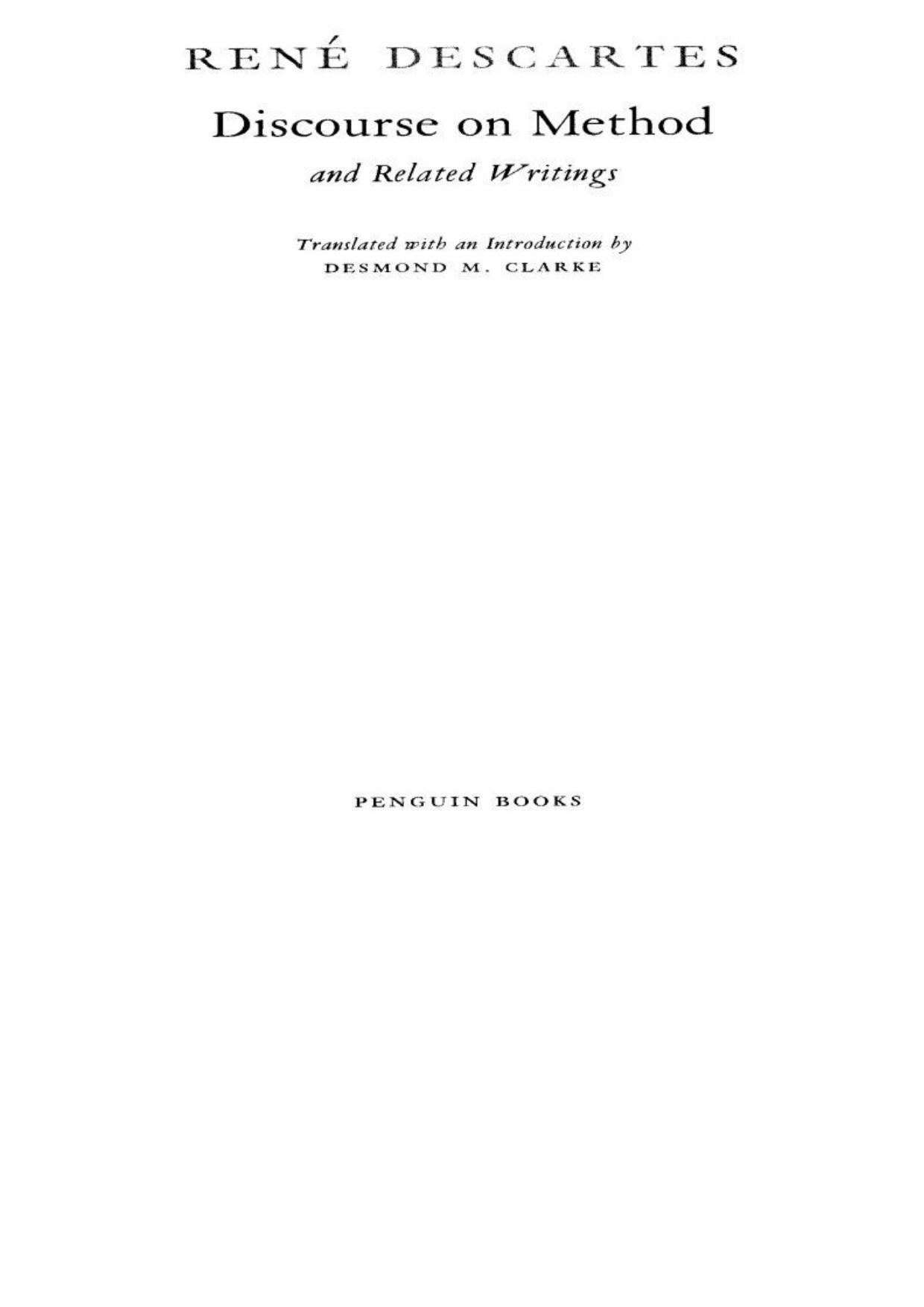
Discourse on Method and Related Writings PDF
Preview Discourse on Method and Related Writings
"It is not enough to have a good mind; it is more important to use it well" René Descartes was a central figure in the scientific revolution of the seventeenth century. In his Discourse on Method he outlined the contrast between mathematics and experimental sciences, and the extent to which each one can achieve certainty. Drawing on his own work in geometry, optics, astronomy and physiology, Descartes developed the hypothetical method that characterizes modern science, and this soon came to replace the traditional techniques derived from Aristotle. Many of Descartes' most radical ideas—such as the disparity between our perceptions and the realities that cause them—have been highly influential in the development of modern philosophy. This edition sets the Discourse on Method in the wider context of Descartes' work, with the Rules for Guiding One's Intelligence in Searching for the Truth (1628), extracts from The World (1633) and selected...
